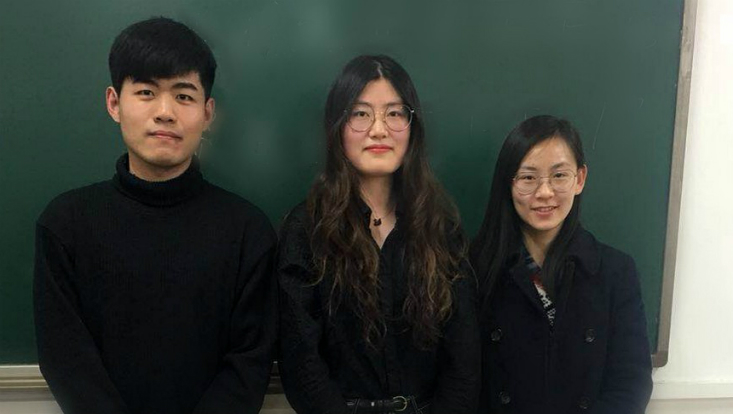CHINA TIME 2018: Volles Haus bei Podiumsdiskussion zum chinesischen Sozialkreditsystem
17. September 2018

Foto: UHH
Mehr als 200 Teilnehmer interessierten sich für den Stand und Einschätzungen zu dem Aufbau eines Sozialkreditsystems in China. Vor vier Jahren wurde ein Plan der chinesischen Regierung zur Einführung von Sozialen-Kreditsystemen vorgestellt. Seitdem wurden in mehr als 40 Pilotprogrammen Erfahrungen gesammelt, die weltweit nicht nur von Akademikern intensiv diskutiert werden. Prof. Genia Kostka (FU Berlin), Frau Katika Kühnreich (Politikwissenschaftlerin und Sinologin), Prof. Hinrich Julius (UHH) und Prof. Wolfgang Schulz (UHH / Hans Bredow Institut) diskutierten miteinander und insbesondere mit dem Publikum.
Große Datenmengen werden heute weltweit sowohl bei Privaten als auch bei öffentlichen Institutionen vorhanden. Der rechtliche Umgang mit diesem Phänomen ist unterschiedlich. In China werden hierin vor allem Chancen einer gesellschaftlichen und wirtschaftlichen Fortentwicklung gesehen, während Europa den Datenschutz betont und auch hier massenhaft freiwillig Daten herausgegeben werden. Organisiert von der China-EU School of Law, zeigte sich erneut das gerade im Rahmen der CHINA TIME große Interesse an China – auch wenn erkenntlich ist, dass der Umgang mit großen Datenmengen eine weltweite Herausforderung ist.
CHINA TIME 2018: Great Interest House at Panel Discussion on Chinese Social Credit System
More than 200 participants were interested in the status and assessments of the establishment of a social credit system in China. Four years ago, a plan was presented by the Chinese government for the introduction of social credit systems. Since then, experience has been gained in more than 40 pilot programs, which are not only discussed by academics worldwide. Prof. Genia Kostka (FU Berlin), Mrs. Katika Kühnreich (political scientist and sinologist), Prof. Hinrich Julius (UHH) and Prof. Wolfgang Schulz (UHH / Hans Bredow Institute) discussed with each other and especially with the audience.
Large amounts of data are now available worldwide both in private and public institutions. The legal handling of this phenomenon is different. China sees opportunities for societal and economic development, while Europe emphasizes data protection against the fact of massive voluntary data releases. Organized by the China-EU School of Law, it interest in developments again was large – especially in the context of the CHINA TIME - even though it is clear that dealing with large amounts of data is a worldwide challenge.


